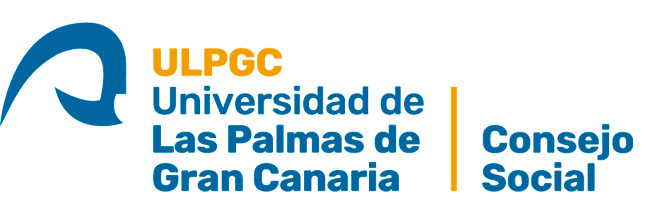The standing committee carries out executive duties and follows up on the decisions taken during the social council’s plenary sessions. Furthermore, the standing committee can pass resolutions in those areas where the power to do so has been expressly delegated by the plenary.



Members of the standing committee:
- The chairman of the Social Council
- The vice chairman of the Social Council
- Two spokespeople assigned by the Canary Island government’s department for education
- A spokesperson assigned by the Canary Island parliament
- A spokesperson representing the island councils
- A spokesperson of the most representative trade unions
- Three spokespeople representing the university community
- The secretary general of the Social Council, who has the right to address the committee but not to vote
MEMBERS

D. PRIMITIVO JERÓNIMO PÉREZ
Representative of the Cabildo de La Palma

DÑA. Mª CARMEN MARRERO FALCÓN
Representative of the trade unionss

D. JUAN ANTONIO GARCÍA GONZÁLEZ
Representative of the professional associations
DELEGATED POWERS:
In accordance with article 9.2 of the 11/2003 Act of 4th April on Social Councils and the Organisation of the Canary Island University System, the Social Council plenary approved the delegation of the following powers to the Social Council’s standing committee:- To approve minor changes to the document which stipulates the information concerning jobs within administration and university services [Relación de Puestos de Trabajo del Personal Administrativo y Servicios de la Universidad], which do not incur an additional financial cost to that foreseen within Chapter 1 of the university budget for the corresponding financial year.
- To approve the renewal of borrowing operations agreed upon in the social council plenary session.
- To approve the transfer of capital expenditure to any other section of the university’s expenses budget, providing the sum does not exceed 120,000 euros or that the transfer does not require the prior approval of the regional government.
- To report on the agreements in place between the university and health-care institutions.
- To approve the economic viability assessments of the study programmes.
- To stipulate the key criteria for the creation of the university budget, prior to its approval by the government department responsible for the university, providing that said criteria adhere to the Multi-annual Strategic Plan previously submitted by the Social Council plenary.
- To authorise, for their approval by the regional government, budgets of up to 2,500,000 euros for borrowing and guarantee operations
- To approve additional expenses or amendments to pre-existing expenses with regards to the price of university services during the current budgetary year.
- To approve studies or reports which aim to promote the provision of university courses which respond to the demands of society, in accordance with the guidelines on this issue established by the council’s plenary in its Action Plan or similar.
- To adopt initiatives for the improvement of the quality and efficiency of activities carried out by the university, in accordance with the policy areas established by the plenary. This role is conducted through collecting the necessary information and promoting studies, surveys or similar initiatives which allow for the performance of the services to be corroborated, especially with regards to teaching, research, and management.
- To monitor the university’s activities in relation to policies concerning grants, subsidies, exemptions, and credits, both with regards to study and research, and to submit relevant reports and proposals to the Social Council for approval.
- To approve the proposed distribution of collaboration grants put forward by the government ministry responsible for universities. These grants are aimed at introducing students in their final year of a postgraduate course to research tasks, where they may collaborate in a manner compatible with their studies and in line with the criteria established by the plenary.
- To regularly review the work of the university’s Internal Monitoring Department and submit a yearly report to the Social Council’s plenary.
- To establish the specific salary of the teaching staff who give seminars, courses, or classes which do not lead to an official qualification in line with the criteria imposed by the plenary in this respect and at the request of the university’s Governing Council.
- To undertake initiatives to encourage the collaboration of Canarian society in financing the university through patronage, sponsorship, or formalising collaboration agreements.
- To develop measures which promote the participation of professional, social and economic stakeholders in the creation and reform of course syllabuses.
- To approve the report on the workings and successes of the service focused on students completing their training and facilitating their employment (UCEFE), for its referral to the university’s Governing Board, without prejudice to its presentation in the Social Council’s plenary session.
- To approve the name change of university centres and research institutes at the request of the university’s Governing Board.
- To approve the university’s participation in other public or private entities, foundations, or associations, where the university’s financial contribution to their maintenance does not exceed 60,000 euros.
- To approve the disposition of the university’s fixed assets and assets of extraordinary value, and the divestiture of the university’s public domain goods, provided that their value does not exceed 12,000 euros.








